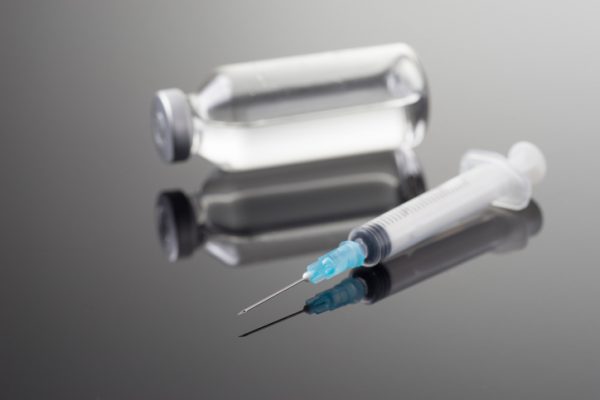
The company furthest along among U.S. players in developing a vaccine against the virus that causes Covid-19 will get an expedited review from the Food and Drug Administration.
Cambridge, Massachusetts-based Moderna said Tuesday that the FDA had granted a fast-track designation for mRNA-1273, its investigational vaccine against SARS-CoV-2. The vaccine is currently in a Phase I study sponsored by the National Institute of Allergy and Infectious Diseases, and the company is preparing to begin Phase II and also Phase III development. However, it has not publicly announced any data from the Phase I program.

Behavioral Health, Interoperability and eConsent: Meeting the Demands of CMS Final Rule Compliance
In a webinar on April 16 at 1pm ET, Aneesh Chopra will moderate a discussion with executives from DocuSign, Velatura, and behavioral health providers on eConsent, health information exchange and compliance with the CMS Final Rule on interoperability.
Shares of Moderna were down 2% on the Nasdaq late Tuesday morning.
Fast-track designation is an FDA program that enables expedited review of therapies and vaccines being developed for serious conditions, along with a rolling submission of data for approval.
“Fast-track designation underscores the urgent need for a vaccine against the novel coronavirus,” Moderna chief medical officer Tal Zaks said in a statement. “As we await the full set of clinical data from the NIAID-led Phase I study, we are actively preparing for our Phase II and Phase III clinical studies to continue learning about the potential of mRNA-1273 to protect against SARS-CoV-2.”
The company said last week that the FDA had finished reviewing its investigational new drug application to start Phase II development of mRNA-1273, and the company expects to start that study shortly. However, as of publication time, no information about the Phase II study had been uploaded to ClinicalTrials.gov, which continues to only list the NIAID-sponsored Phase I trial.

A Deep-dive Into Specialty Pharma
A specialty drug is a class of prescription medications used to treat complex, chronic or rare medical conditions. Although this classification was originally intended to define the treatment of rare, also termed “orphan” diseases, affecting fewer than 200,000 people in the US, more recently, specialty drugs have emerged as the cornerstone of treatment for chronic and complex diseases such as cancer, autoimmune conditions, diabetes, hepatitis C, and HIV/AIDS.
In addition, it is finishing its design of the protocol for a Phase III study. The Biomedical Advanced Research and Development Authority, part of the Department of Health and Human Services, has provided a funding commitment of up to $483 million to support the vaccine’s development through registration.
CanSino Biologics, a company based in Tianjin, China, said in a filing with the Hong Kong Stock Exchange last month that it would soon enter its recombinant Covid-19 into Phase II testing and has since done so, meaning that of all the companies developing vaccines it is furthest along, though its development appears to be limited to China.
Photo: Esben_H, Getty Images












